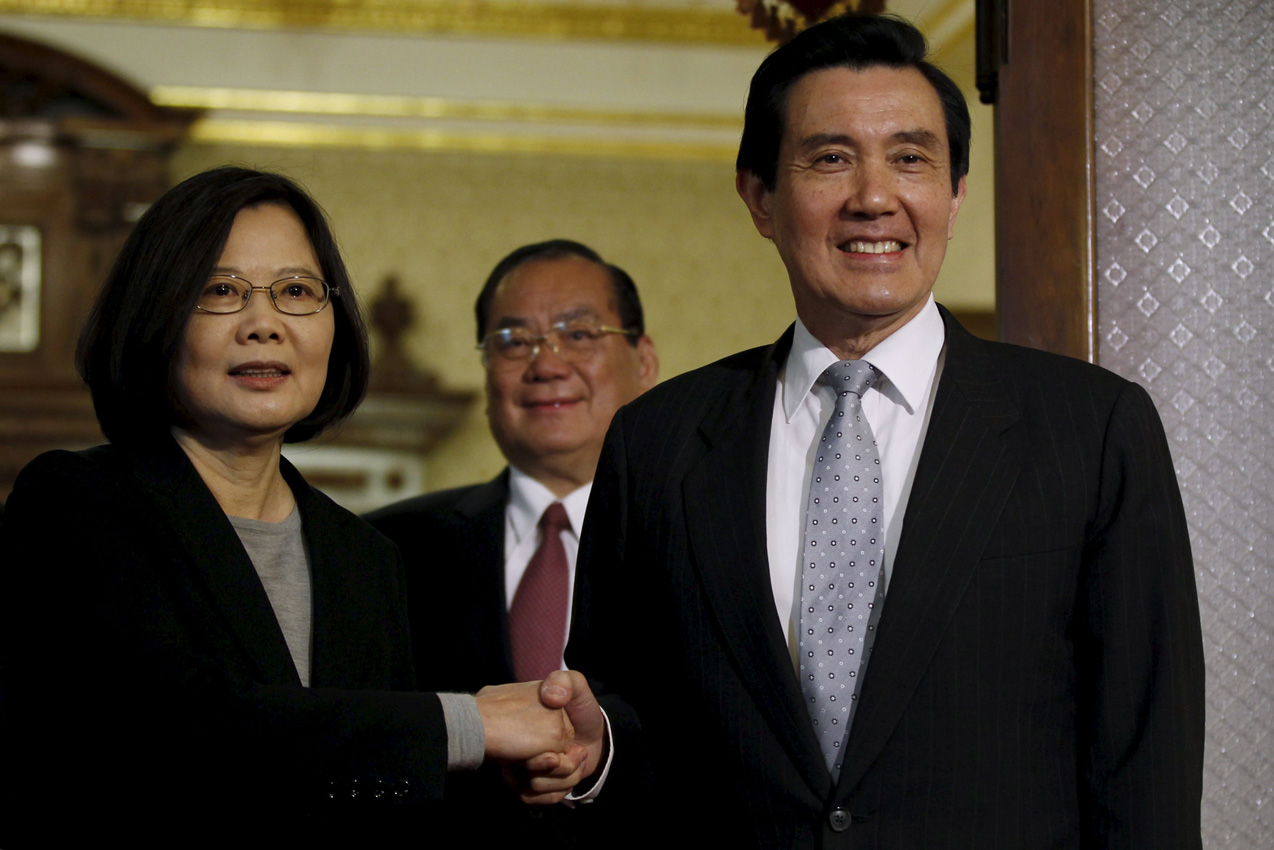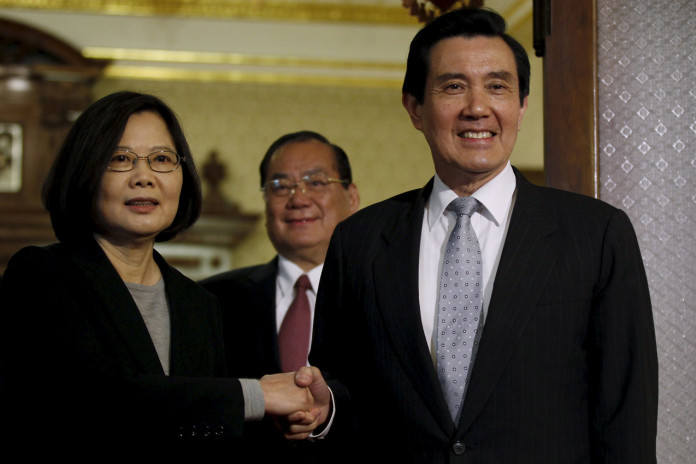TAIPEI – He won Taiwan’s largest ever landslide victory, a safe pair of hands promising prosperity and stability – but president Ma Ying-jeou leaves office this month caricatured as incompetent, aloof and wildly out of step with public sentiment.
Coolly coiffed with a sweep of jet-black hair, urbane Ma was seen as a reliable “Mr Clean” when he stormed to victory for the Kuomintang party in 2008, replacing an outgoing opposition government mired in corruption.
However, as he prepares to hand the reins of power to opposition leader Tsai Ing-wen on May 20, Ma faces possible court action and leaves a legacy fraught with division.
Relations with Beijing had sunk to a low under Ma’s predecessor President Chen Shui-bian of the Democratic Progressive Party.
Ma banked on friendlier ties for Taiwan to thrive. A rapprochement and a slew of trade deals followed, culminating with a historic handshake with Chinese President Xi Jinping last year.
But while Ma may have fulfilled a personal ambition, the public felt short-changed and increasingly saw him as a mainland puppet jeopardising Taiwan’s sovereignty. China still views self-ruling Taiwan as part of its territory, with reunification as its ultimate aim.
During student-led protests against a China trade pact in 2014, rally posters portrayed Ma with a Hitler moustache.
Other banners showed him with antlers growing out of his ears – a pointed jibe after Ma had mistakenly said that deer antlers used for Chinese medicine were actually hair from the animal’s ears.
At their worst, his popularity faded to nine per cent – earning him the nickname “nine-per cent president” among opponents.
Ma was “unable to reach out to the local Taiwanese”, said Jean-Pierre Cabestan, political science professor at Hong Kong Baptist University, instead making relations with Beijing his priority.
He also failed to bridge divisions within his own party.
“He lacks leadership and charisma,” said Cabestan.
“He was unable to lead and control the KMT, his ministers, and gave the impression of being soft with China and hard with the opposition.” After his presidential immunity lapses, Ma will face possible lawsuits from political rivals relating to the alleged leaking of political secrets and failing to declare assets.
It is an ignominious sign-off for the Harvard-educated former justice minister and Taipei mayor, and son of a senior KMT official.
Beleaguered Ma has admitted his government could have done better to meet the demands of a public stretched by high rents and low salaries – but he staunchly defends his China policy as having brought peace to the region.
“Ma’s policies have painted him as for the one per cent and China, at a time when society at large is fed up with both,” said Jonathan Sullivan, associate professor at the University of Nottingham’s School of Contemporary Chinese Studies in Britain.
“Adding to these policy outcomes is Ma’s personal reputation for aloofness, indecisiveness – but paradoxically with an authoritarian streak – incompetence and inability to balance the interests of his party, Taiwan and his own personal objectives,” added Sullivan.
Even staunch KMT supporters have turned their backs, with the party in tatters having lost its majority in parliament for the first time under Ma.
“We had high hopes, but we saw our faith in him fading away,” said Sun Chieh-yi, 59, a retired watch shop owner who comes from a traditionally pro-KMT family.
“People do not feel their lives are any better than before.” However, observers say history may look back more kindly on Ma as China relations are set to cool once more under Tsai and the traditionally pro-independence DPP, with concerns cross-strait friction may surge.
“At least he showed disputes between the two former rivals could be solved in a peaceful manner,” said Liao Da-chi, political science professor at Taiwan’s National Sun Yat-sen University.
In some ways, said Sullivan, Ma could never win.
“He was caught between two stalls: China calls him weak for failing to push rapprochement further. The majority of Taiwanese feel he went too far too quickly, and against their wishes.”






